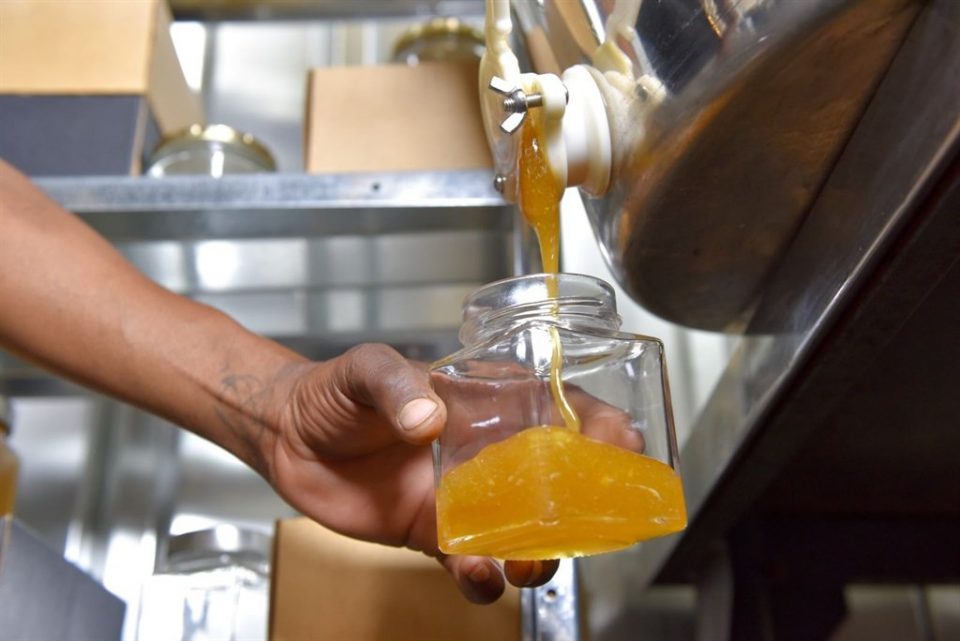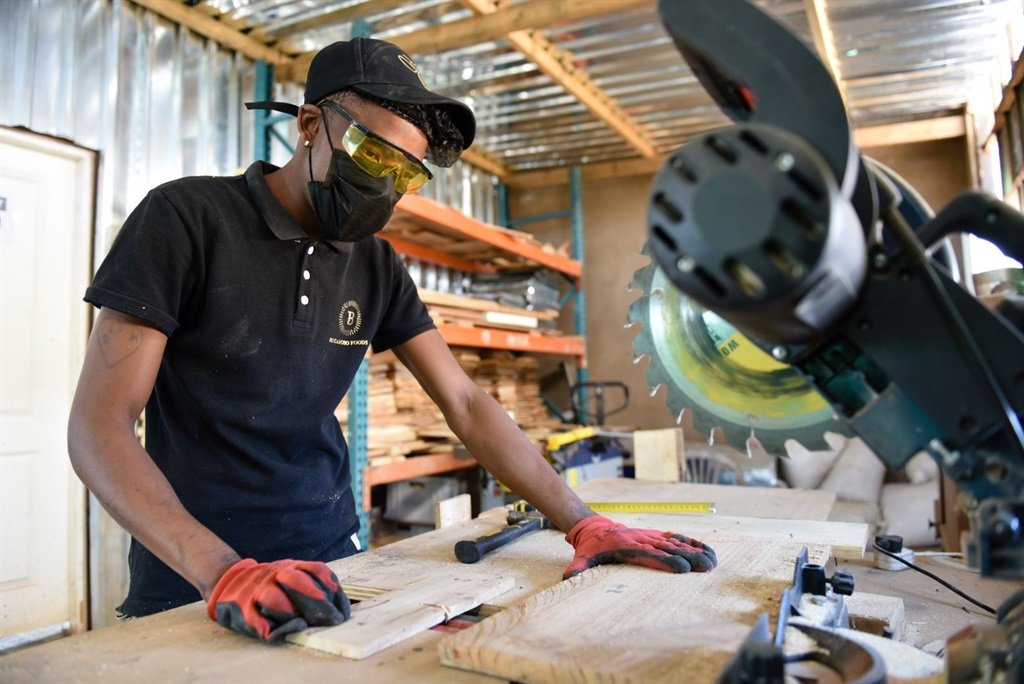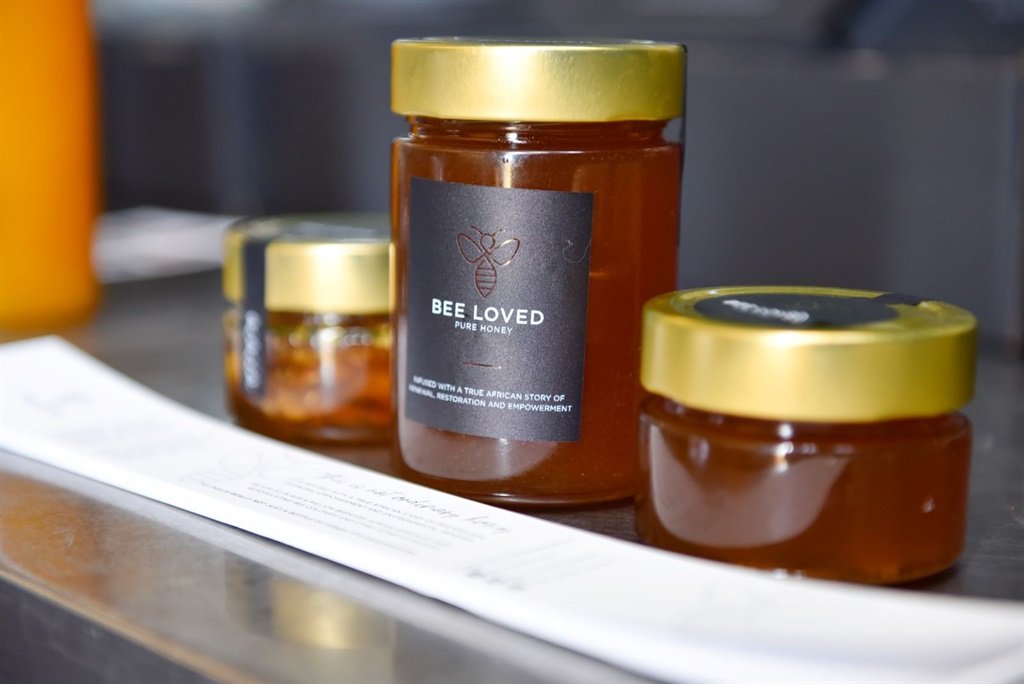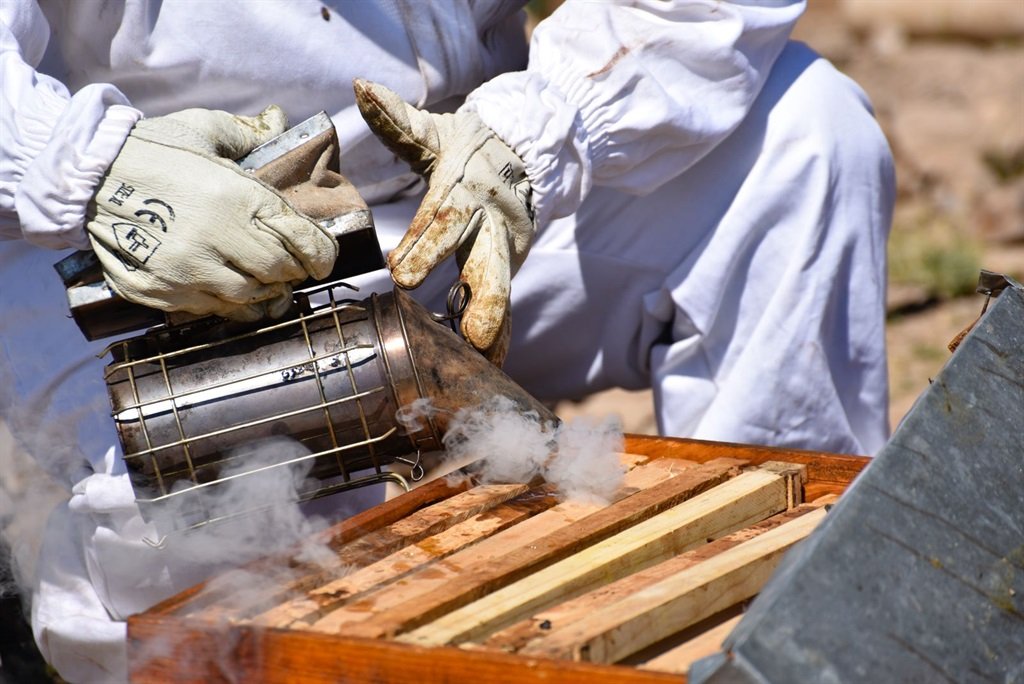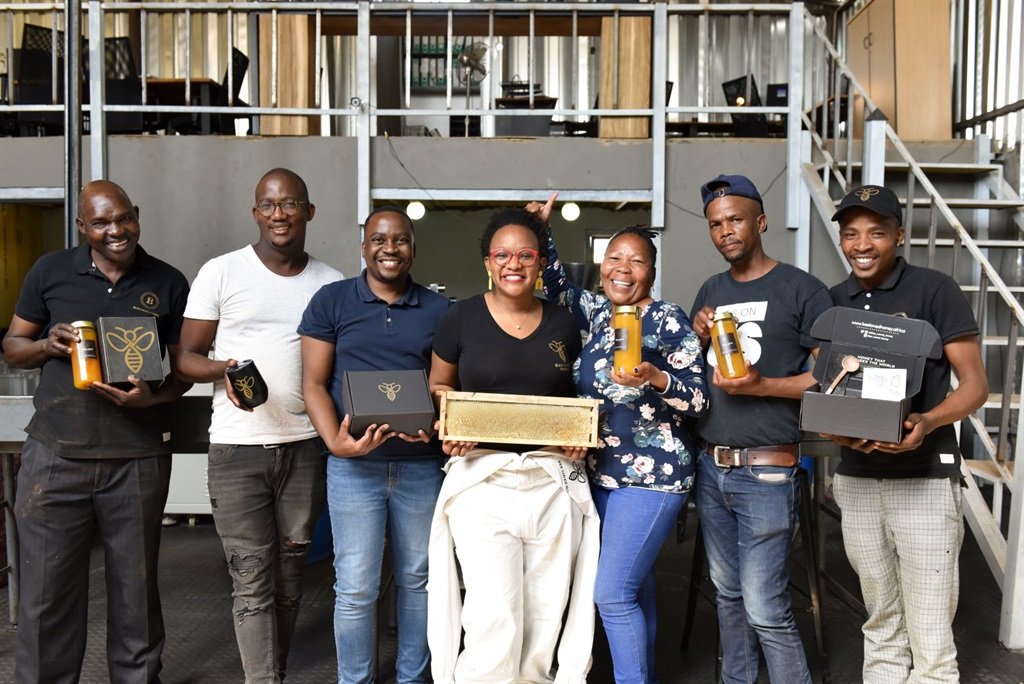- The world’s bee population is declining, and that spells bad news for food security.
- In South Africa, harmful indigenous harvesting methods and an influx of imported blended honey have also had a negative impact.
- But a familiar buzz has returned to the small town of Taung in South Africa’s North West province.
- It’s here where Bee Loved Honey is headquartered, manufacturing beehives, training rural beekeepers, and bottling pure honey for both the local and export market.
- Bee Loved Honey is on a mission to produce and distribute a million hives by 2025, combatting unemployment in rural areas and, at the same time, repopulating bee colonies.
- For more stories go to www.BusinessInsider.co.za.
A honey business headquartered in the small town of Taung in South Africa’s North West province is on a mission to build and distribute a million hives to repopulate dwindling bee colonies and empower rural communities.
The world’s bee population is declining because of intensive farming practices, land-use change, mono-cropping, pesticides, and higher temperatures associated with climate change. Present species extinction rates are 100 to 1,000 times higher than normal due to human impacts, according to the Food and Agriculture Organization of the United Nations (FAO UN).
This bee die-off threatens to intensify food insecurity. About one-third of commonly eaten foods rely on crops pollinated by honeybees, according to the US Food and Drug Administration (FDA).
South Africa’s rural North West, home to towering Acacia trees, has traditionally been abuzz with the sound of honeybees. The area has a rich history of indigenous beekeeping and honey collecting.
During South Africa’s hard lockdown and alcohol bans, these indigenous beekeepers in and around Taung, with an innate knowledge of honey harvesting, turned to producing mead, explains Lesego Holzapfel, founder of Bee Loved Honey.
“These indigenous beekeepers in the village, they can tell you exactly where the bees are [and] where the honey is,” explained Holzapfel, adding that the knowledge passed down from generation to generation has been extremely valuable to the community.
“But their methods of harvesting honey have been terrible for the environment.”
With no sophisticated equipment to safely harvest honey from wild hives, these indigenous beekeepers often resort to setting fire to the surrounding area, with smoke pacifying bees. In the process, these fires sometimes rage out of control, destroying vegetation and bee colonies.
Bee Loved Honey uses vastly different methods of honey harvesting, with an emphasis on caring for the bees and protecting the environment. These methods are taught, through training sessions, to both unemployed youth and older indigenous beekeepers in rural areas as part of Holzapfel’s mission to produce pure honey for sale, create jobs, and repopulate bee colonies.
Holzapfel grew up in rural Taung and went on to study at the London School of Economics and Political Science and City College of New York. She returned to her hometown in 2012 with a vision to uplift rural communities through proper education and innovative entrepreneurship. Her initial aim was to transform communities through crop farming, introducing beekeeping as a secondary source of income for farmers while they waited to harvest their produce.
But the beekeeping element grew, with Holzapfel diving headfirst into researching the challenges and opportunities within South Africa’s honey industry.
“I was disappointed to learn that the number of beekeepers in the country is dwindling and part of that is because of the influx of blended honey that’s coming through our borders that forces beekeepers to leave the trade,” said Holzapfel.
“Also, South Africa is a net importer of honey. We only have production capacity, as a country, of 2,000 tons, [and] the country consumes more than 5,000 tons, and what’s been scarier is that of the 5,000 tons they consume, most of it is not even real honey, it’s blended honey.”
Holzapfel shifted her focus to honey in 2017, and, three years later, built a factory in Taung. It’s here where Bee Loved Honey manufactures beehives and packages pure honey for sale online and at selected outlets, like the Oranjezicht City Farm Market in Cape Town.
The beehives, which cost R1,200 each, are either bought by or sponsored for rural youth with interest in beekeeping and small-scale farmers. Bee Loved Honey provides training and also has wholesale off-take agreements with the rural beekeepers for the honey produced in these hives, which are transported back to its Taung factory to be packaged and sold.
To date, Bee Loved Honey has deployed more than 600 hives and collected more than seven tons of honey. This brand of honey recently received FDA approval and is already kosher certified. With this, Holzapfel is keenly eyeing the export market, wanting to build a proudly South African brand that is revered by overseas consumers for its superior taste and sustainable sourcing practices.
“We will soon be exporting to the US. The whole idea is taking high-quality African product [and] placing them on the shelves of retailers in the US to change the narrative about products that are coming from Africa,” said Holzapfel.
And while exports are a focus for Holzapfel, Bee Loved Honey has a far more ambitious goal: to manufacture and distribute a million beehives across Africa by 2025. This, Holzapfel says, will not only empower rural communities and combat unemployment but will also play a vital role in stemming the bee population’s decline, adding to overall food security in Africa.
“The idea is that we train the next generation of African beekeepers. So, these are people who would then care for our bees and then care for the environment, because if our bees continue to go down at the rate [that] they’re [currently] going down, we are in trouble, especially from a food security perspective,” said Holzapfel.


